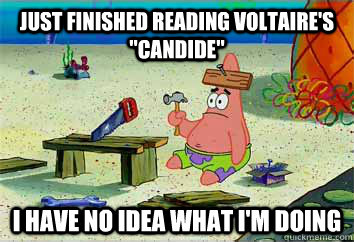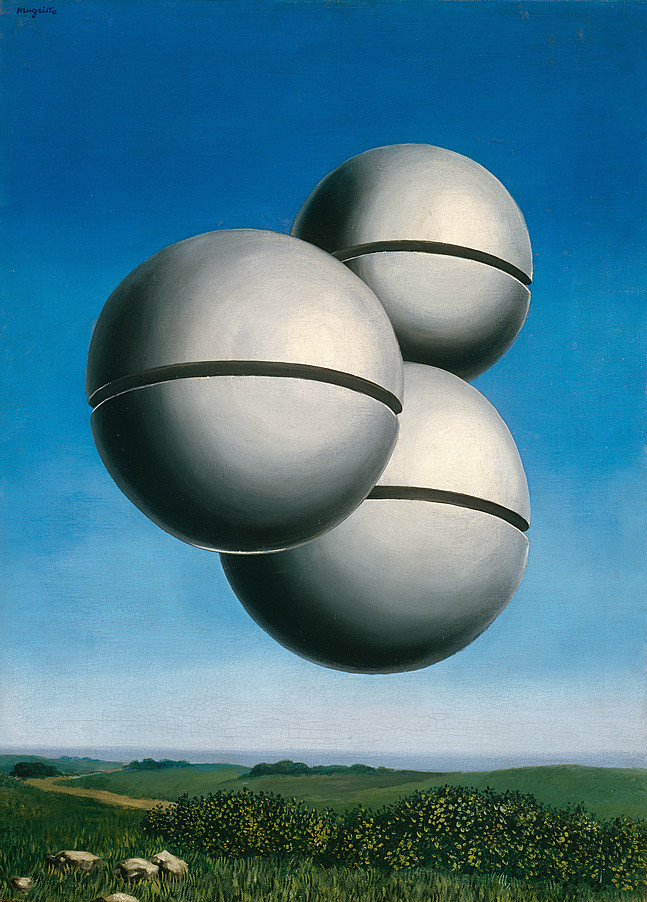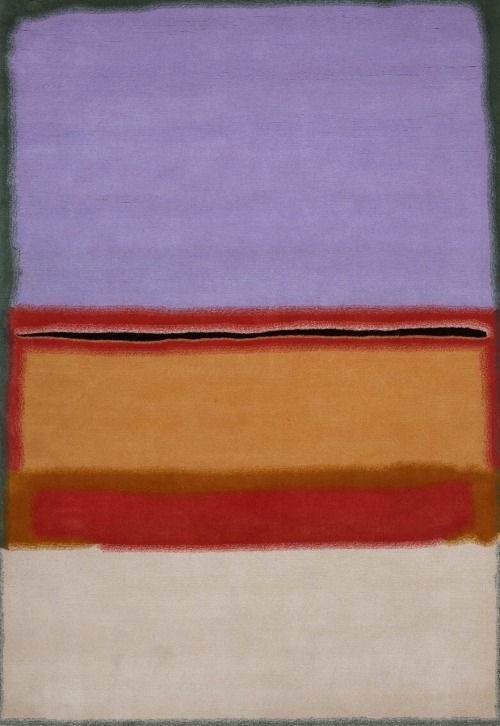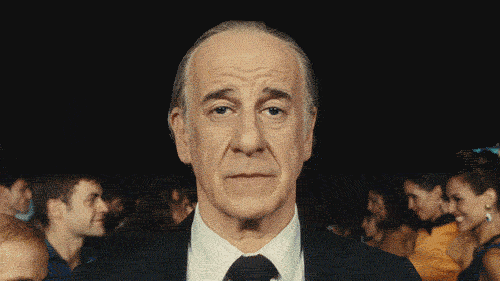29 February 2016
somebody
Libellés :
Gillian Anderson,
Janka Nabay,
Snasen,
the x-files
vibe
foarte mare alinatura
poate-i de la soare
poate-i de la dor
poate-i de la sine
poate-i de la soare
poate-i de la dor
poate-i de la sine
highly
Libellés :
Giovanni Battista Pergolesi
my thoughts are my sluts
Oui, oui, je suis médiocre et fâché.
where were you in 1805? Diderot was here - a nice multi-media edition of Rameau's Nephew to share with your loved ones
Main quote:
Mais ne voyez-vous pas qu’avec un pareil raisonnement vous renversez l’ordre général, et que si tout ici-bas était excellent, il n’y aurait rien d’excellent.
ps we need to talk
Libellés :
Denis Diderot,
The Internet
28 February 2016
27 February 2016
Before the Law
Before the law sits a gatekeeper. To this gatekeeper comes a man from the country who asks to gain entry into the law. But the gatekeeper says that he cannot grant him entry at the moment. The man thinks about it and then asks if he will be allowed to come in later on. “It is possible,” says the gatekeeper, “but not now.” At the moment the gate to the law stands open, as always, and the gatekeeper walks to the side, so the man bends over in order to see through the gate into the inside. When the gatekeeper notices that, he laughs and says: “If it tempts you so much, try it in spite of my prohibition. But take note: I am powerful. And I am only the most lowly gatekeeper. But from room to room stand gatekeepers, each more powerful than the other. I can’t endure even one glimpse of the third.” The man from the country has not expected such difficulties: the law should always be accessible for everyone, he thinks, but as he now looks more closely at the gatekeeper in his fur coat, at his large pointed nose and his long, thin, black Tartar’s beard, he decides that it would be better to wait until he gets permission to go inside. The gatekeeper gives him a stool and allows him to sit down at the side in front of the gate. There he sits for days and years. He makes many attempts to be let in, and he wears the gatekeeper out with his requests. The gatekeeper often interrogates him briefly, questioning him about his homeland and many other things, but they are indifferent questions, the kind great men put, and at the end he always tells him once more that he cannot let him inside yet. The man, who has equipped himself with many things for his journey, spends everything, no matter how valuable, to win over the gatekeeper. The latter takes it all but, as he does so, says, “I am taking this only so that you do not think you have failed to do anything.” During the many years the man observes the gatekeeper almost continuously. He forgets the other gatekeepers, and this one seems to him the only obstacle for entry into the law. He curses the unlucky circumstance, in the first years thoughtlessly and out loud, later, as he grows old, he still mumbles to himself. He becomes childish and, since in the long years studying the gatekeeper he has come to know the fleas in his fur collar, he even asks the fleas to help him persuade the gatekeeper. Finally his eyesight grows weak, and he does not know whether things are really darker around him or whether his eyes are merely deceiving him. But he recognizes now in the darkness an illumination which breaks inextinguishably out of the gateway to the law. Now he no longer has much time to live. Before his death he gathers in his head all his experiences of the entire time up into one question which he has not yet put to the gatekeeper. He waves to him, since he can no longer lift up his stiffening body. The gatekeeper has to bend way down to him, for the great difference has changed things to the disadvantage of the man. “What do you still want to know, then?” asks the gatekeeper. “You are insatiable.” “Everyone strives after the law,” says the man, “so how is that in these many years no one except me has requested entry?” The gatekeeper sees that the man is already dying and, in order to reach his diminishing sense of hearing, he shouts at him, “Here no one else can gain entry, since this entrance was assigned only to you. I’m going now to close it.
libre arbitre
Croyez−vous, dit Candide, que les hommes se soient toujours mutuellement massacrés comme ils font aujourd'hui ? qu'ils aient toujours été menteurs, fourbes, perfides, ingrats, brigands, faibles, volages, lâches, envieux, gourmands, ivrognes, avares, ambitieux, sanguinaires, calomniateurs, débauchés, fanatiques, hypocrites et sots ?
Croyez−vous, dit Martin, que les éperviers aient toujours mangé des pigeons quand ils en ont trouvé ?
Oui, sans doute, dit Candide.
Eh bien ! dit Martin, si les éperviers ont toujours eu le même caractère, pourquoi voulez−vous que les hommes aient changé le leur ?
Oh ! dit Candide, il y a bien de la différence, car le libre arbitre...
26 February 2016
somnusor
Libellés :
Baraka,
Godfrey Reggio,
Koyaanisqatsi,
Naqoyqatsi,
Philip Glass,
Powaqqatsi,
Qatsi
(০▿০)
sārbātoare, iuhu
25 February 2016
Eternal Recurrence
If every second of our lives recurs an infinite number of times, we are nailed to eternity as Jesus Christ was nailed to the cross. It is a terrifying prospect. In the world of eternal return the weight of unbearable responsibility lies heavy on every mood we make. That is why Nietzsche called the idea of eternal return the heaviest of burdens (das schwerste Gewicht).
If eternal return is the heaviest of burdens, then our lives can stand out against it in all their splendid lightness.
But is heaviness truly deplorable and lightness splendid?
The heaviest of burdens crushes us, we sink beneath it, it pins us to the ground. But in the love poetry of every age, the woman longs to be weighed down by the man's body. The heaviest of burdens is therefore simultaneously an image of life's most intense fulfillment. The heavier the burden, the closer our lives come to the earth, the more real and truthful they become.
Conversely, the absolute absence of a burden causes man to be lighter than air, to soar into the heights, take leave of the earth and his earthly being, and become only half real, his movements as free as they are insignificant.
What then shall we choose? Weight or lightness?
Parmenides posed this very question in the sixth century before Christ. He saw the world divided into pairs of opposites: light/darkness, fineness/coarseness, warmth/cold, being/nonbeing. One half of the opposition he called positive (light, fineness, warmth, being), the other negative. We might find this division into positive and negative poles childishly simple except for one difficulty: which one is positive, weight or lightness?
Parmenides responded: lightness is positive, weight negative.
lacan-can
Fry is such a sweetheart!
Lacan's magically sad quotes: What does it matter how many lovers you have if none of them gives you the universe?
Lacan's magically sad quotes: What does it matter how many lovers you have if none of them gives you the universe?
Libellés :
Jacques Lacan,
Paul Fry,
Yale
mort
Dieu est mort - Nietzsche 1883
L'auteur est mort - Barthes 1967
L'auteur est mort - Barthes 1967
Libellés :
Friedrich Nietzsche,
Jon Hassell,
Roland Barthes
naked
reteta:
Well, basically, there was this little dot,
right, and the dot went bang...
and the bang expanded...
energy formed into matter.
Matter cooled, matter lived,
the amoeba to fish, the fish to fowl...
the fowl to froggy, the froggy to mammal,
the mammal to monkey, the monkey to man.
Amo, amas, amat. Quid pro quo.
Memento mori. Ad infinitum.
Sprinkle on a little bit of grated cheese
and leave under the grill till doomsday.
ps.
What is it that goes on in this particular
postmodernist gas chamber?
Nothing. It's empty.
So what is it that you're guarding?
Space.
You guarding space?
That's stupid, isn't it, because someone could
break in there and steal all the fucking space...
and you wouldn't know
it had gone, would you?
Good point.
23 February 2016
imagination matérielle
modul in care visatorii (poetii) vad si reprezinta elementele (apa, focul, pamantul, aerul) si acestea se manifesta, devenind verbe
Libellés :
Gaston Bachelard,
Jean Starobinski,
Massive Attack,
melancolie,
René Magritte,
Young Fathers
22 February 2016
un festival?
Libellés :
Alva Noto,
Murcof,
STRICHKA FESTIVAL
avant-garde takes on tradition
Les auteurs de la dénonciation (d'après Starobinski)
XVI Montaigne
XVII François de La Rochefoucauld
XVIII Jean-Jacques Rousseau
XIX Stendhal
XX Paul Valéry
(aici este nucleul taking over-ului)
XVI Montaigne
XVII François de La Rochefoucauld
XVIII Jean-Jacques Rousseau
XIX Stendhal
XX Paul Valéry
(aici este nucleul taking over-ului)
Libellés :
Jean Starobinski,
SomaFM,
Talvin Singh
21 February 2016
aoleu
tare-s proasta, of
Libellés :
histoire de la littérature,
Jean Starobinski
19 February 2016
a murit numele
Libellés :
2001: A Space Odyssey,
il nome della rosa,
Stanley Kubrick,
Umberto Eco
pole
care foame?
Pole!
Pole!
foame(te)
uiti de dor
uiti de durere
uiti de somn
uiti de muzica
atunci cand ti-e foame
de carnat
o
m
g
what do i do?
hai sa incerc muzica
apoi somn
apoi durere
apoi dor
poate trece
poate nu
ps. totusi piesa asta-i genialisima
uiti de durere
uiti de somn
uiti de muzica
atunci cand ti-e foame
de carnat
o
m
g
what do i do?
hai sa incerc muzica
apoi somn
apoi durere
apoi dor
poate trece
poate nu
ps. totusi piesa asta-i genialisima
Laughter
Sans doute une chute est toujours une chute, mais autre chose est de se laisser choir dans un puits parce qu’on regardait n’importe où ailleurs, autre chose y tomber parce qu’on visait une étoile. C’est bien une étoile que Don Quichotte contemplait.
Libellés :
Alice Coltrane,
Don Quichotte,
Henri Bergson
17 February 2016
NoW la BR
shanti
Libellés :
Boiler Room,
Nightmares On Wax
15 February 2016
we're cool, we're feeling, we're breathing
14 February 2016
13 February 2016
i do vessel
Libellés :
Frida Khalo,
Zola Jesus
demult
eram si eu impartita
acuma parca am crescut
si m-am reintregit
poate-i de bine
acuma parca am crescut
si m-am reintregit
poate-i de bine
нет, это не рио де жанейро
1. Вы произошли не от обезьяны, как все остальные граждане, вы произошли от коровы: туго соображаете.
2. Я, знаете, не финансист, я свободный художник и холодный философ.
2. Я, знаете, не финансист, я свободный художник и холодный философ.
Libellés :
Lapalux,
The Big Lebowski,
Золотой теленок
11 February 2016
poveste
m-am gandit azi mult la moarte
asta-i tare degraba
noua nu ne pare asa pentru ca am uitam cum e sa nu fim
dar intr-o zi asta se va intampla
si asta-i degraba
si asta-i frumos si strasnic
si in loc de corpul nostru aici
va fi doar un fel de camp magnetic creat din amintiri
si el repede va disparea
se va deconstrui
si nu va mai fi nimic din ce stim
noi vom fi ceva ce nu stim
ce fine :)
ce curios
si ce bizar
tre de dormit mai putin, cred
si de uitat mai mult la Mark
asta-i tare degraba
noua nu ne pare asa pentru ca am uitam cum e sa nu fim
dar intr-o zi asta se va intampla
si asta-i degraba
si asta-i frumos si strasnic
si in loc de corpul nostru aici
va fi doar un fel de camp magnetic creat din amintiri
si el repede va disparea
se va deconstrui
si nu va mai fi nimic din ce stim
noi vom fi ceva ce nu stim
ce fine :)
ce curios
si ce bizar
tre de dormit mai putin, cred
si de uitat mai mult la Mark
Libellés :
Kaya Project,
Mark Rothko
Burial-esque
His real name was Sergey Deulin.
And he really died.
R.I.P Manu Shrine.
And he really died.
R.I.P Manu Shrine.
10 February 2016
respectiv
cand transferi toate datele dintr-un telefon in altul
se transfera tare multe amintiri :)
ce chestie
respectiv
chiar daca mie piesa asta nu-mi place
nici dupa forma
nici dupa sens
o ascult
respectiv
e complicat cand vezi bucati din conversatii care atat de tare te-au durut
se intreaba "pentru ce le-ai salvat, capra ce esti?"
nu se raspunde
ca-i clar
respectiv
tacerea-i de aur
respectiv
chiar daca mie piesa asta nu-mi place
nici dupa forma
nici dupa sens
o ascult
respectiv
e complicat cand vezi bucati din conversatii care atat de tare te-au durut
se intreaba "pentru ce le-ai salvat, capra ce esti?"
nu se raspunde
ca-i clar
respectiv
tacerea-i de aur
se transfera tare multe amintiri :)
ce chestie
09 February 2016
alaptare in public 1 : public 0
dormi
hai
hai dormi
hai te rog dormi
hai ajuta-ma sa dorm
si dormi
te rog
dormi
hai dormi
hai te rog dormi
hai ajuta-ma sa dorm
si dormi
te rog
dormi
08 February 2016
ascult Sartre
ascult Beauvoir
cat de multe s-au schimbat in 50 de ani
si cat de putine
ascult Beauvoir
cat de multe s-au schimbat in 50 de ani
si cat de putine
Libellés :
Jean-Paul Sartre,
Simone de Beauvoir
ŽžŽžŽžŽžŽžŽžŽž
i like it :)
depresia de duminica a luat sfarsit
a venit luni
tot normal
eee
a venit luni
tot normal
eee
06 February 2016
life's an ocean
azi e ziua lui Bob
azi tare mult m-am gandit
si am vorbit
si-am asteptat
parca a fost o zi de nastere fara sarbatorit
azi m-am simtit bine
si rau
azi a trebuit sa se schimbe ceva
si nu s-a schimbat nimic
teoretic
practic
acvatic
socratic
azi a fost o zi buna
dar azi nu a fost
am vrut la apa
am stat in ea vreo ora si-am asteptat
daca as avea curajul sa fac ceva
as face-o
dar n-am
si probabil asa este mai bine
azi am inbatranit un pic
si-am procrastinat
si-am asteptat
si-am relevat
date despre cum timpul trece
si cum eu raman
se va termina si asta
si viitorul va fi mai luminos
salutari cordiale din trecut
azi tare mult m-am gandit
si am vorbit
si-am asteptat
parca a fost o zi de nastere fara sarbatorit
azi m-am simtit bine
si rau
azi a trebuit sa se schimbe ceva
si nu s-a schimbat nimic
teoretic
practic
acvatic
socratic
azi a fost o zi buna
dar azi nu a fost
am vrut la apa
am stat in ea vreo ora si-am asteptat
daca as avea curajul sa fac ceva
as face-o
dar n-am
si probabil asa este mai bine
azi am inbatranit un pic
si-am procrastinat
si-am asteptat
si-am relevat
date despre cum timpul trece
si cum eu raman
se va termina si asta
si viitorul va fi mai luminos
salutari cordiale din trecut
Libellés :
Bob Marley,
the verve
05 February 2016
quamdiu mundus durat
Libellés :
Bvdub,
La grande bellezza
Моё сердце не здесь, моё сердце в горах
Libellés :
Arvo Pärt,
La grande bellezza
manierisme de l'âme
04 February 2016
nimic
nu te leaga
nici de cer
nici de pamant
starea asta complexa
de armonie perfecta
aproape in exces
mai ales la 2:37
cand incep soapte
le vocii ei, oh my
nici de cer
nici de pamant
starea asta complexa
de armonie perfecta
aproape in exces
mai ales la 2:37
cand incep soapte
le vocii ei, oh my
03 February 2016
ьфг
традук
мэ тусуй
сигур
мэ тусуй
сигур
Libellés :
Hemlock Recordings,
Joe,
Midland
02 February 2016
simulacrum
Libellés :
BADBADNOTGOOD,
Ghostface Killah
01 February 2016
askholk ("un- quiet")
vs
Libellés :
George Gershwin,
Hannah Arendt,
t o p $
Goodbyes, they often come in waves waves waves
waves
waves
waves
waves
waves
Subscribe to:
Comments (Atom)














